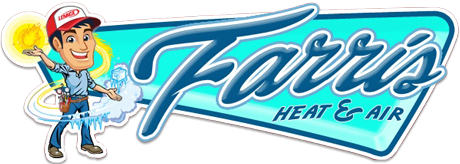
We can all benefit from saving a few bucks from time to time. One of the simplest ways to do so is by identifying energy inefficiencies around your home. Upgrading your HVAC system or adding a smart thermostat, for example, provides more control over your HVAC system, contributing to a more energy-efficient home and savings on your monthly energy bills.
Continue below to learn about 4 ways you can make energy-efficient home improvements.
1. Try Smart Home Products Like a Smart Thermostat
If you still use a round-dial thermostat and control it manually, try taking a step toward the future by installing a smart, or Wi-Fi, thermostat – which contains numerous features to improve your home's energy efficiency.
The function homeowners enjoy the most is being able to control their smart thermostats from anywhere they want through their smartphone or other smart device. As an example, in situations where you forget to adjust your thermostat before leaving for vacation, you can simply take out your smartphone and make any needed adjustments.
Just like a programmable thermostat, a smart thermostat permits you to pre-set your home’s temperature according to the time of day and day of the week so you’re not heating or cooling an empty house. Smart thermostats also feature the ability to understand your temperature preferences over time and automatically make energy-efficient modifications. They can even create monthly energy reports that show how much energy you’re using and when so you can make adjustments to cut costs.
If you’re wanting to know how to get a free smart thermostat, talk to your utility company to learn if there are any discounts or free smart thermostats offered.
2. HVAC Tune Ups
Unfortunately, some homeowners often forget to have their heating and cooling systems maintained. While this may not seem like a huge deal, ignoring maintenance could result in a number of issues, including inefficiency, breakdowns, and a shorter system lifespan.
When performing an HVAC maintenance service, the technician should examine your HVAC system, clean important components, and catch minor issues before they lead to bigger, more expensive repair issues. Maintenance keeps HVAC systems functioning at optimal condition, which means they use less energy to heat and cool your home. This could also reduce your energy bills, expand the lifespan of HVAC equipment, and contribute to fewer repairs.
We suggest two HVAC tune ups annually – once during the spring before summer and again in the fall before the arrival of winter weather.
3. Replacing Your Aging, Inefficient HVAC Equipment
Annoyingly, like every appliance, HVAC systems don't last forever and eventually need to be replaced. Newer heaters and cooling systems are much more effective than units sold just over 10 years ago. Thankfully, helpful HVAC companies like Farris Heating & Air can offer professional services including furnace installation in Bartlesville.
Well-maintained furnaces and air conditioners can run for approximately 15-20 years. If your system is within that timeframe, it can be a good idea to replace them ahead of time to minimize the risk of untimely equipment failures that can leave you cold and uncomfortable on a cold winter night. If your system is approaching 15 years old and requires an expensive repair, it’s almost always time to replace it. As reported by the U.S. Department of Energy, installing a new HVAC system can sometimes save you approximately 20-40% on your monthly energy bills, so you’ll recoup some of the costs of putting in a new system.
A professional HVAC technician can help you determine the most energy efficient HVAC system available. In general, try to find HVAC systems that are Energy Star certified, meaning the equipment meets rigid guidelines set forth by the U.S. Environmental Protection Agency. LENNOX HVAC systems are some of the most efficient systems available, featuring both high AFUE and SEER ratings. AFUE is intended for heating systems and measures how well they convert fuel to heat. SEER, in the meantime, is used to calculate the efficiency of cooling systems.
Call a reputable HVAC provider like Farris Heating & Air for air conditioning installation in Bartlesville.
4. Use High Efficiency Air Filters
If you’re looking for new HVAC filters, remember that not all air filters are created equally. Specific air filters are far more efficient than others, resulting in lower energy bills and a cleaner home environment.
The efficiency of HVAC air filters is rated by their Minimum Efficiency Reporting Value, or MERV rating. The MERV scale ranges between 1-20; the higher the number, the more effective the filters are. It’s relevant to note, however, that high-efficiency air filters can actually obstruct airflow too much depending on the type of HVAC system you have. It’s beneficial to review the owner’s manual before getting a filter to determine the best option for your system.
